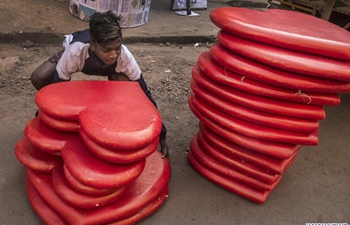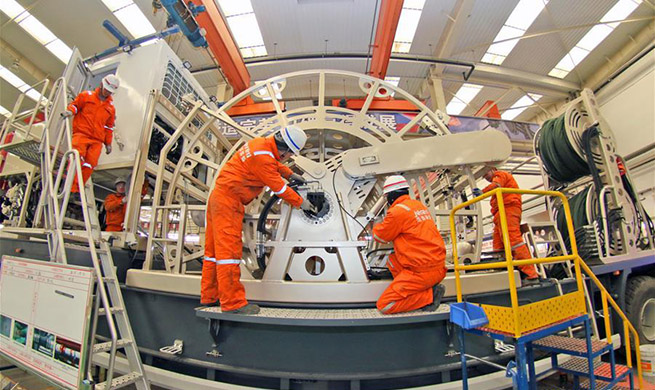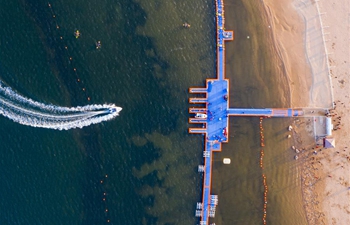NEW YORK, Feb. 12 (Xinhua) -- Bill and Melinda Gates, co-chairs of the Bill & Melinda Gates Foundation, said that toilets of the future might not be the "sexiest" innovations in the world, but they will save millions of lives.
In their 2019 annual letter released Tuesday, Bill Gates said that more than 2 billion people around the world lack access to a decent toilet. Their waste often ends up in the environment, untreated, killing nearly 800 children every day. And exporting rich world sanitation solutions isn't an option, because they require sewer systems that are too expensive to build and need a lot of water.
"Nearly eight years ago, Melinda and I challenged engineers and scientists around the world to reinvent the toilet," Bill Gates said in the letter. "Last year we organized a toilet fair in Beijing, where I got to check out a number of next-gen toilets in person and even shared the stage with a beaker of human feces."
He said several companies are business-ready. Their inventions check almost all the boxes: They kill pathogens, can keep pace with the needs of fast-growing urban areas, and don't require sewer infrastructure, external water sources, or continuous electricity to operate.
"The only area where they currently fall short is cost -- which is why our foundation is investing in more R&D to help make them affordable for the poor," he said.
He said that at first glance the next generation of toilets are not that different from traditional ones, they don't exactly look like something out of a sci-fi novel. The real magic happens out of sight. Unlike today's commodes, the toilets of the future are self-contained. They're essentially tiny treatment plants capable of killing pathogens and rendering waste safe on their own. Many of them even turn human feces and urine into useful byproducts, like fertilizer for crops and water for handwashing.
Melinda Gates said that they also improve lives -- especially for women and girls. Life without a toilet is hard for anyone, but it tends to be women and girls who suffer most.
"Bill and I have both met women who have suffered kidney damage from holding in urine all night to avoid a risky trip to dangerous public facilities. We've met others whose only place to defecate is in an open field, so they restrict their food intake all day and wait for cover of darkness to relieve themselves in relative privacy," she said.
She said that one in ten girls in sub-Saharan Africa and one in four girls in India miss school during their periods, most often because their schools don't have anywhere they can go to change or dispose of menstrual hygiene products.
"If you're anything like me, I'm guessing toilets aren't your favorite topic of conversation. But if you care about keeping girls in school, expanding women's economic participation, and protecting them against violence, then we have to be willing to talk about toilets," she said.













